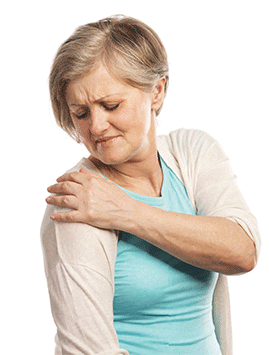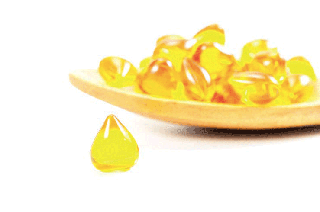7 ways to look after your bones & joints

From diet to exercise and supplementation, there are many ways you can care for your bones and joints naturally
It’s never too late to start thinking about the health of your bones and joints. Brittle bones and joint pains don’t necessarily have to be a part of the ageing process if you take care of them with the right nutrients and appropriate exercise. Here we speak to the experts to get their top tips.
Stock up on vitamin D
“Vitamin D is essential for healthy bones and teeth and a fundamental element of our immune system,” says Andrew Thomas, founder and managing director at BetterYou (www.betteryou.com).
“A deficiency of vitamin D impairs the absorption of dietary calcium and phosphorus, which results in poor mineralisation of the skeleton. Few foods naturally contain vitamin D; therefore, the main source is our skin’s unprotected exposure to the UVB rays of the sun. Vitamin D is produced via a two-stage activation process which initially occurs in the liver and, finally, in the kidney. In the UK, between the months of October and April, the UK sun is simply not strong enough to stimulate adequate vitamin D production and supplementation is recommended. Primary prevention is vital and health professionals advise safe sun exposure as well as a dietary intake as rich in vitamin D as possible, including oily fish. It is also recommended that all vulnerable groups take a vitamin D supplement.”

Keep active
“People who exercise regularly have been shown to have greater bone density,” explains Steve Bessant, nutritionist and co-founder of The Coconut Collaborative (www.coconutco.co.uk).
“Weight-bearing exercise is vital for good bone and joint health. The stress forces involved in weight-bearing exercise force the body to strengthen the bones by laying down extra bone tissue, thickening the bone fibres, ligament and tendons. Pressure on the joints also helps to stimulate synovial fluid production and circulation which keeps joint surfaces healthy. Weight-bearing exercise can be as simple as walking, if you are new to exercise. Yoga is a great way of keeping strong and supple and weight training is an option for the more advanced. For bone density improvement as little as three 20-minute sessions per week would suffice.”
Take some omega-3s
“Safeguard joint health by taking omega-3 EPA which is found only in seafoods but is particularly rich in fish oils,” says Babi Chana, a nutritionist working with Wileys Finest to promote the overall benefits of fish oil (www.wileysfinest.co.uk).
“EPA is a vital anti-inflammatory nutrient that naturally blocks pain, inflammation and tissue injury. Modern diets trigger inflammatory processes throughout the body, leading to reliance on drugs such as aspirin and ibuprofen. Increasing EPA in the diet, especially using supplements, switches the balance favourably and reduces symptoms of swelling, pain and stiffness. The same inflammatory pathway also promotes blood clotting, so taking fish-oil supplements also lowers the risk of sticky blood which impairs blood flow. Fish oil optimises cardiovascular health by improving blood flow, vessel integrity and overall heart function.”
Cut down on acidic foods
“If your diet is too acidic in nature your body can use the alkalising minerals in your bones and teeth to neutralise the body’s acidity which weakens the bones,” says Steve. “The body can become too acidic through overconsumption of red meat, processed food, sugar and even dairy. (Milk, due to its acidity, has now been shown to reduce bone density with long-term consumption.) This acidity can also be caused by chronic stress. To help alkalise your body, eat plenty of green vegetables and try starting your day with hot water and lemon. Drinking two tablespoons of raw apple cider vinegar is another natural way of alkalising your body.”
Top up with vitamin K
“Bone health tends to be associated with calcium and vitamin D,” says Marcus Webb of Hadley Wood Healthcare (www.hhc.healthcare).
“Don’t get me wrong, these are absolutely vital components in the diet, or in a supplement for bone health, but the up-and-coming nutrient to keep your eye on is vitamin K, or more specifically the MK-7 form of vitamin K2. In essence, we simply do not get enough of this form of vitamin K in our western diets. This may be a problem for our bones. The MK-7 form of K2 directs the calcium in our diet away from being deposited in soft tissue, such as blood vessels, and into the skeleton. So, just like vitamin D, there is a very strong case developing for supplementing our diet with vitamin K in the MK-7 form, which is easily absorbed, remains active in the body longer than other forms and actively enhances skeletal calcification and strength.”

Maintain a healthy body weight
“We all know that being overweight is bad for your health, however it is extremely bad for your joints, as they will be under the added strain of carrying excess weight,” says Shona Wilkinson, head nutritionist at www.nutricentre.com.
“Every extra pound you gain puts four times the stress on your knees. The flip side is that even a small amount of weight loss will give your knees relief. Research has shown that losing as little as 11lbs may improve your joint health and cut your risk of osteoarthritis of the knee by 50 per cent.”
Supplement with boron
“Boron is an often-ignored but nevertheless crucial nutrient for bone formation,” says nutritionist and author, Fiona Kirk (www.fionakirk.com).
“It is not built into the bone, like calcium and magnesium, but is needed in relatively small amounts to assist the enzymes which play an important role in stimulating bone growth. A deficiency of this trace mineral has been shown to affect calcium and magnesium metabolism and the composition, structure and strength of bone, leading to changes similar to those evident in osteoporosis. Top food sources include almonds, walnuts, avocados, broccoli, potatoes, pears, prunes, onions, chick peas, carrots, beans, bananas, red grapes, red apples and raisins. And there’s good news for those who enjoy the occasional stress-relieving glass of wine, cider or beer as these also contain reasonable amounts! Should you be at risk and wish to supplement with an anti-osteoporosis product, look for one that includes at least 600mg of calcium, 300mg of magnesium, 8mg of manganese, 2mg of boron and 2mg of copper together with vitamins K, D and B6 per day.”
Read previous Your Health articles here...